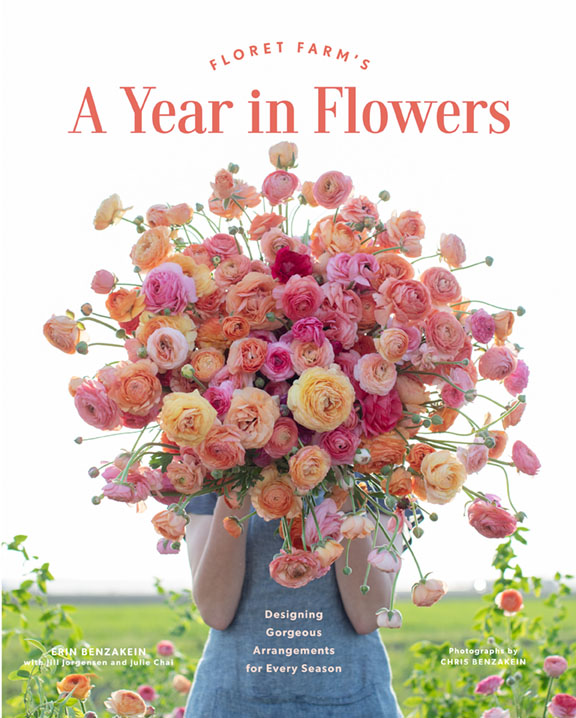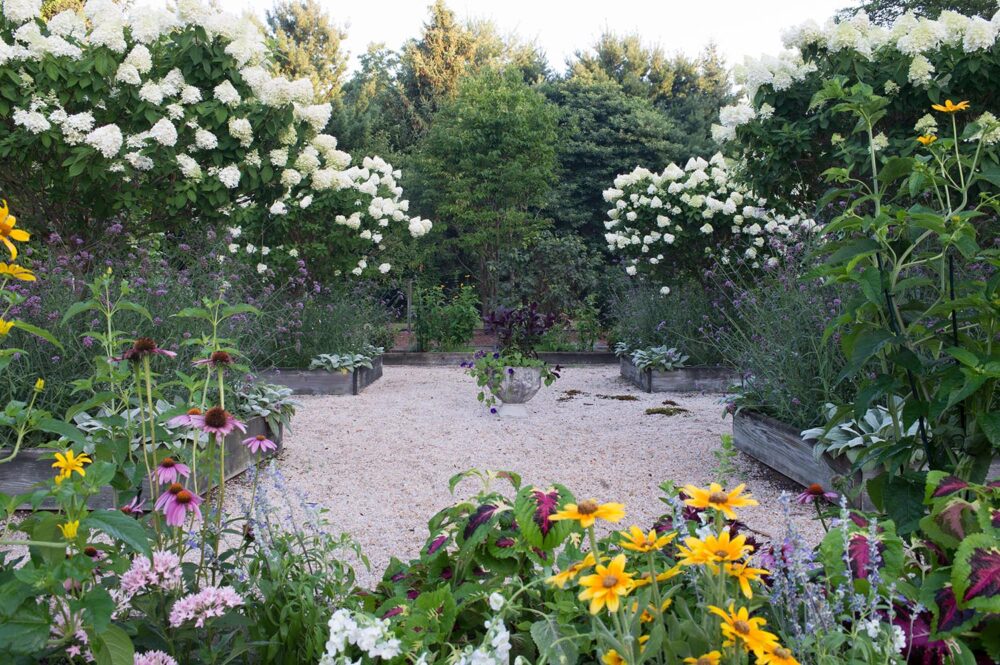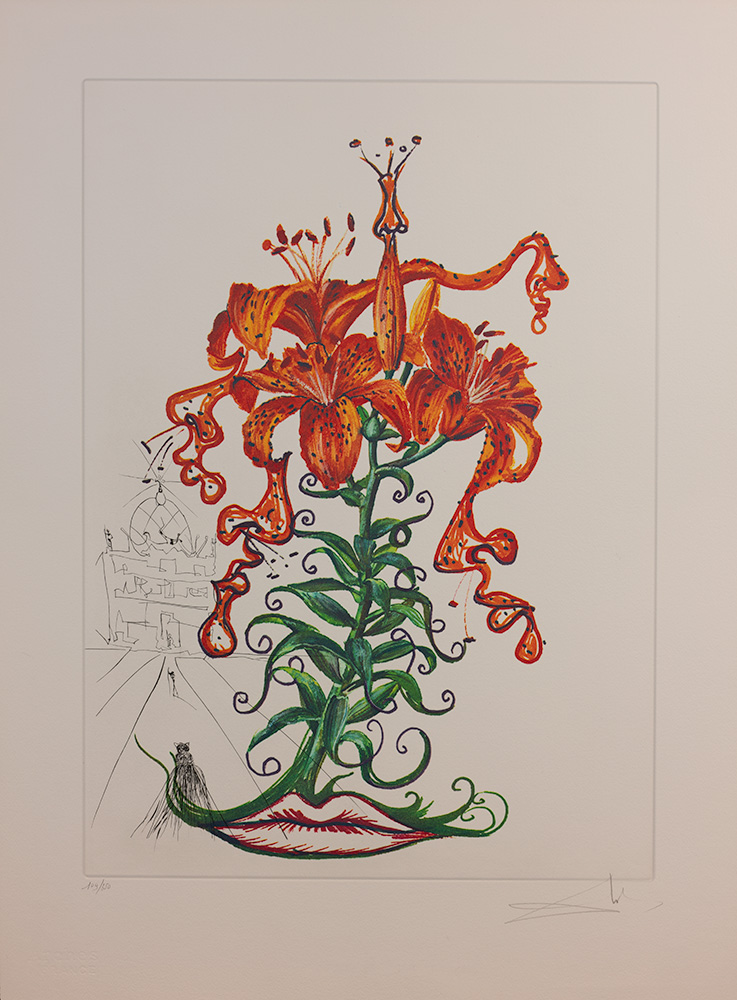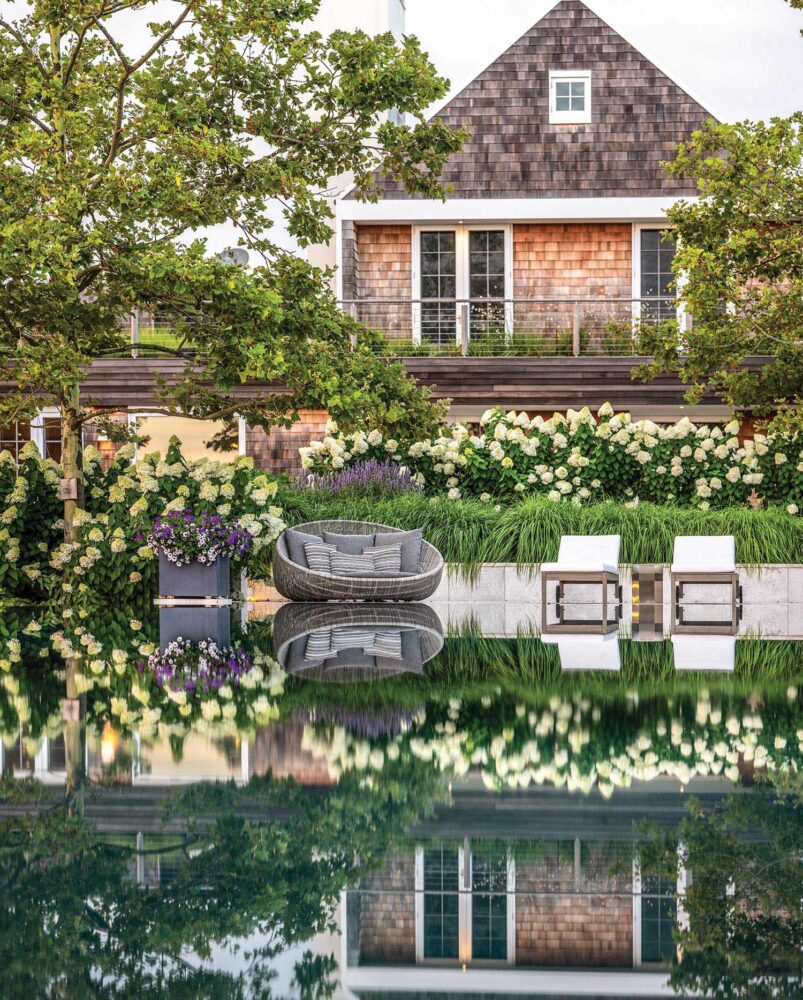
Sherbet-Toned Centerpiece with honeysuckle from Floret Farm’s A Year in Flowers by Erin Benzakein (Chronicle Books, 2020)
Behind our funky old house sits a one-car garage that I’ve transformed into a bright, cheerful flower studio. It has uneven floors; thin, rattling windows; and so many cracks in the walls that plants often make their way inside to bloom. When I first took over this space, I was embarrassed by how rundown it looked on the outside, so I planted a dozen heirloom climbing roses and vines all around the perimeter in hopes that it would eventually be swallowed up in a sea of blooms. The plants flourished, and now I’m continually cutting away branches from the windows so I can still see outside.
Right outside the studio’s back door is the most glorious honeysuckle vine that my eighty-five-year-old neighbor, Louise, gifted me shortly after we moved in. At the tail end of every spring, it explodes into a cloud of fragrant flowers, filling the studio and our backyard with the sweetest scent. I’m always shocked by how vigorous this vine remains, even though we cut from it for nearly every late-spring bouquet.
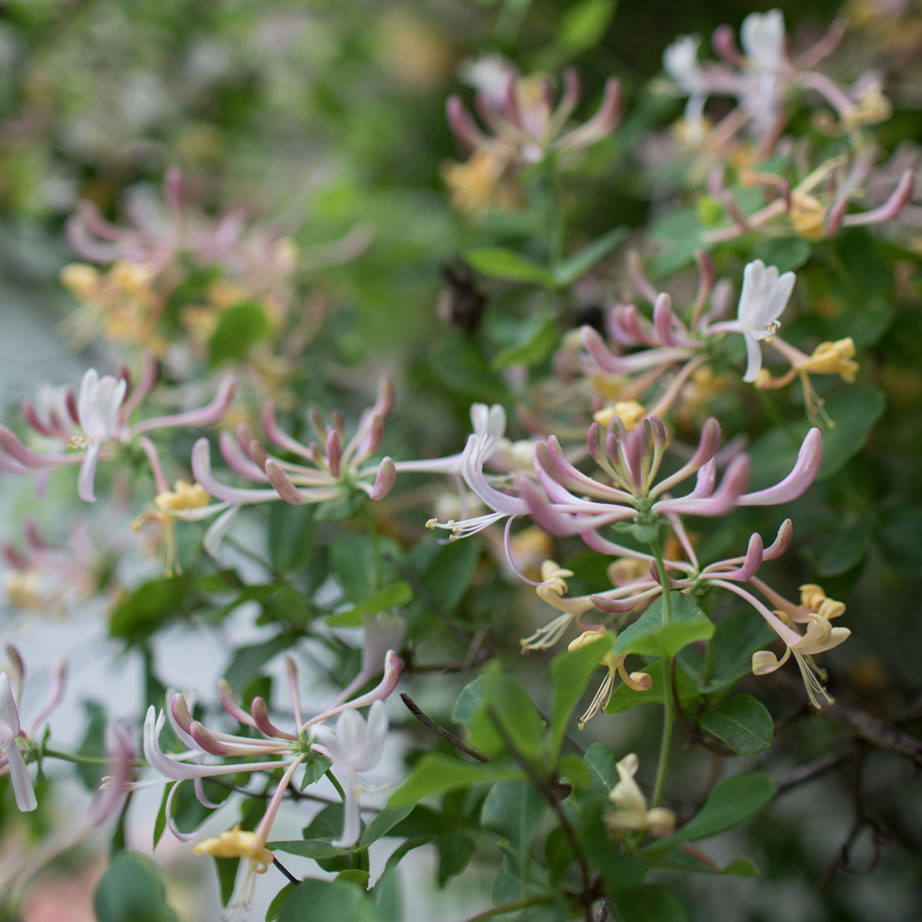
Inspired by this treasured honeysuckle, I wanted flowers to complement its two-toned blossoms, so I combined it with the last of the blush pink and buttercream yellow ranunculus from our greenhouse. Filipendula buds, the veining of the hellebores, and new growth of blueberry and snowberry foliage help carry pink throughout the arrangement. To bring in a tad more yellow and a bit of sparkle, I threaded in airy heuchera flowers, and I used a vintage footed bowl from our local antique store to ground this ethereal, feminine arrangement.
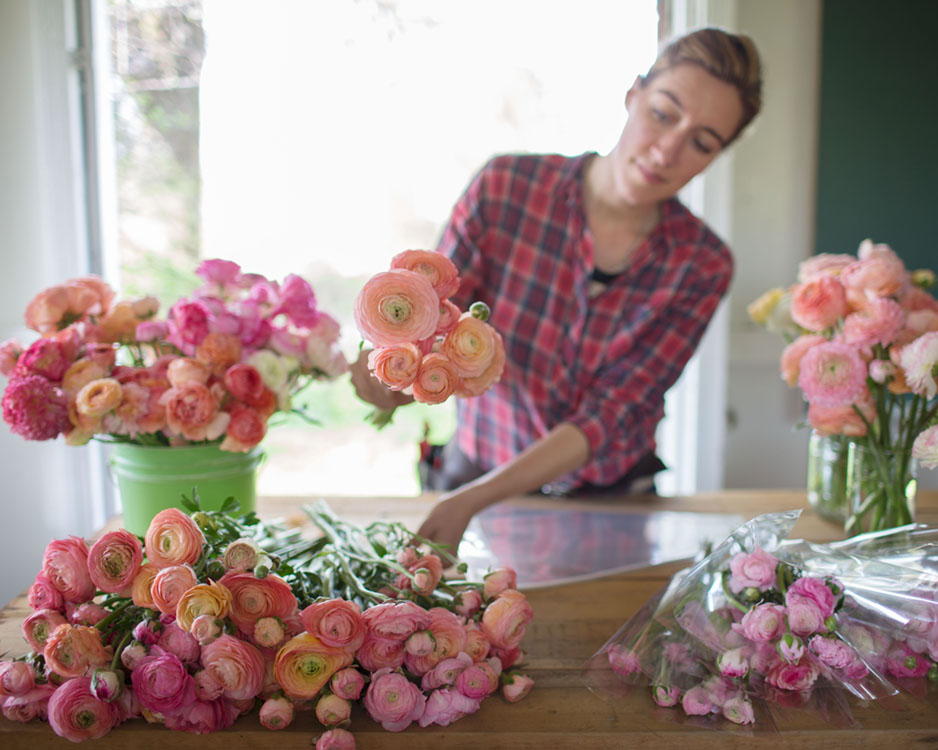
Erin Benzakein with blush pink and buttercream yellow ranunculus from Floret Farm’s greenhouse
INGREDIENTS FOR SHERBET-TONED CENTERPIECE
Editor’s note: Benzakein adds each ingredient in the order listed.
Structural foliage: Snowberry ‘Hancock’
Supporting ingredient: Blueberry ‘Duke’ foliage
Textural ingredient: Honeysuckle ‘Munster’
Supporting flower: Helleborus orientalis
Focal flower: Ranunculus Pastel Mix
Airy accents: Heuchera ‘Amber Waves’ and Filipendula ulmaria
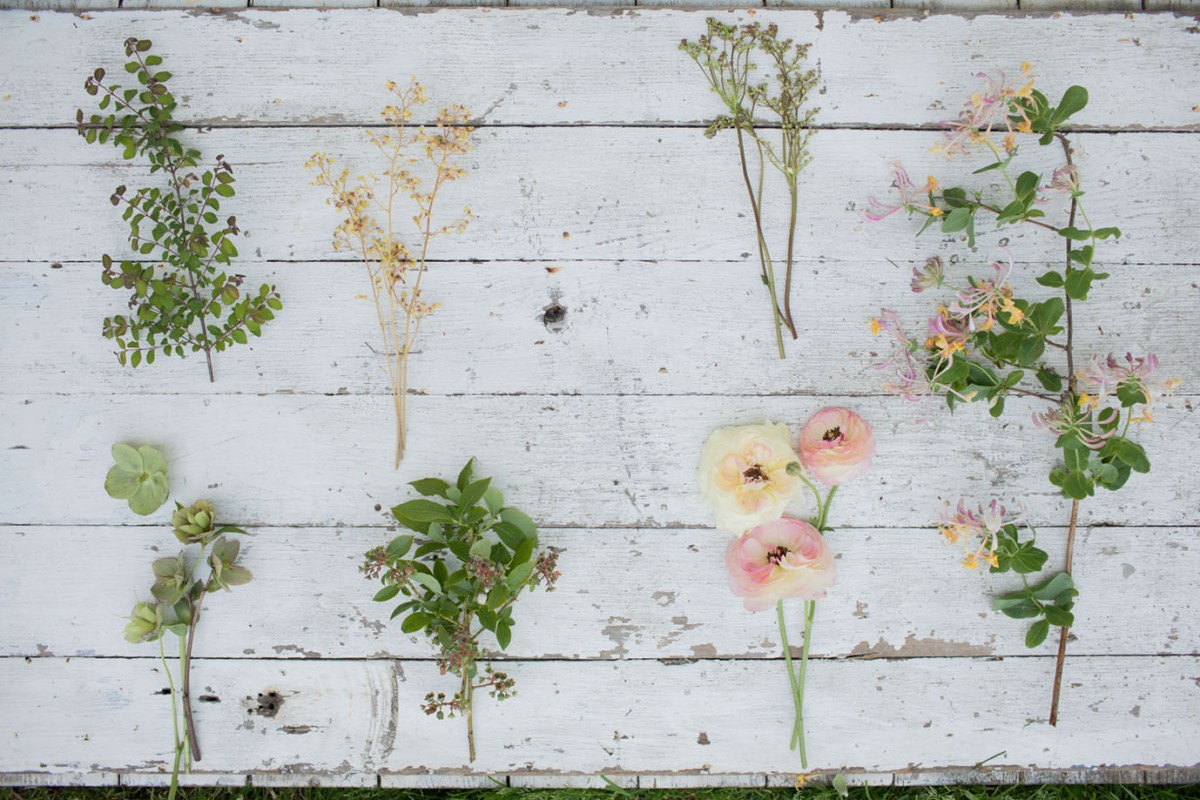
Pictured clockwise from top left: Snowberry ‘Hancock’, Heuchera ‘Amber Waves’, Filipendula ulmaria, Honeysuckle ‘Munster’, Ranunculus Pastel Mix, Blueberry ‘Duke’ foliage, and Helleborus orientalis
Reprinted from Floret Farm’s A Year in Flowers: Designing Gorgeous Arrangements for Every Season by Erin Benzakein with permission by Chronicle Books, 2020.
In the book, Benzakein covers in depth her floral design fundamentals, essential techniques and tools, and inspirational arrangements for spring, summer, autumn, and winter. She is also the author of Floret Farm’s Cut Flower Garden (read an excerpt). Her farm, Floret, is nestled in Washington’s Skagit Valley.
MASTERING MECHANICS WITH FLOWER
In floral design, mechanics are the underlying components that provide structure.
- For a compote or bowl arrangement, try balled-up chicken wire topped with a grid of floral tape (see Destiny Pinson’s how-to).
- To provide extra support for your stems, secure a florist frog to the bottom of your container before adding chicken wire and a grid of floral tape (see Rowan Blossom’s technique).
- Or, streamline your mechanics with the Holly Heider Chapple Pillow for Syndicate (hollychappleflowers.com)—a reusable floral cage that rests in your container and even allows you to transfer your arrangement to a different vessel. Flower magazine gave the pillow a try in this video.

